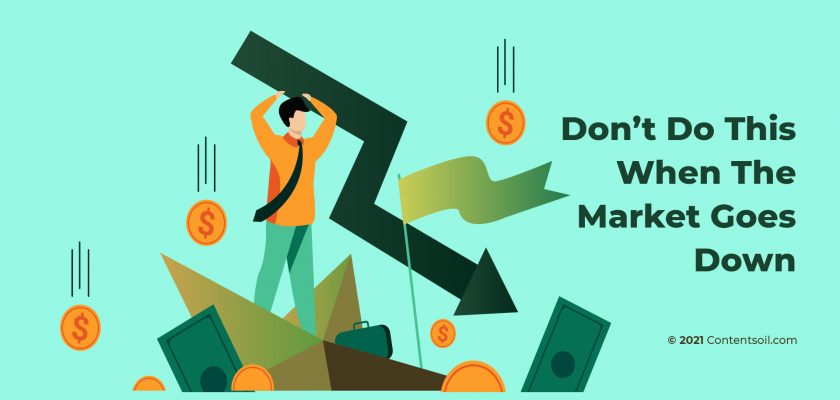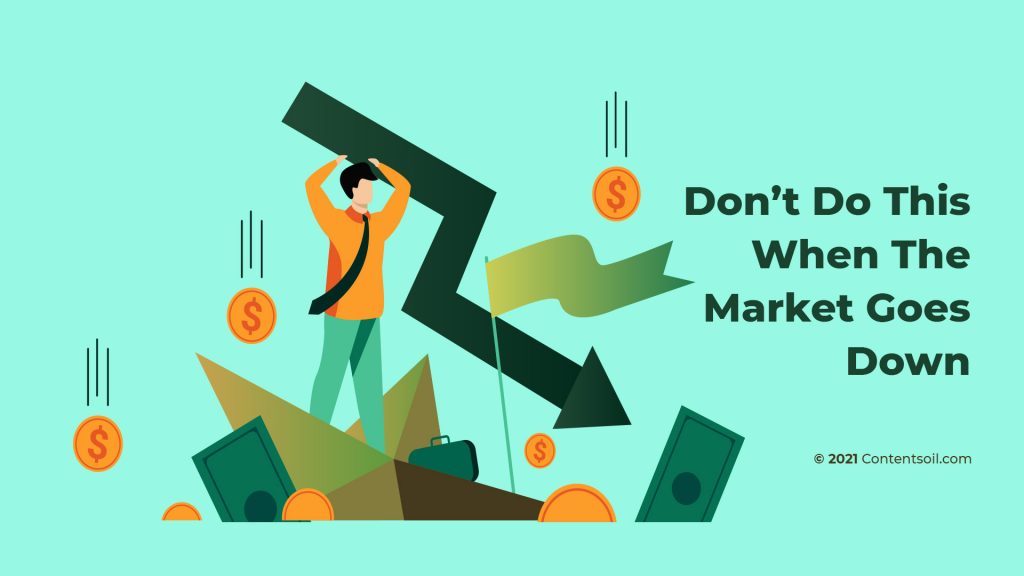The collapse of the economy is caused for many factors. At the moment the price falls, do not be panic.
There are several reasons behind the market crash, such as
– Varying interest rate
– Declining economy
– Inflation
– Deflation
– Tax increases
– Financial and political stocks
– Changes in the economic policy
There are internal reasons behind the market crash, but sometimes it is difficult to identify the economic factors behind the market’s downfall. It is a complex, interrelated financial system. The question is, what one needs to do if the market goes down? Should you pull out all of your money from the market?
The simple answer is don’t panic in the situations like this. People usually do panic about selling in this kind of condition. But this is not what needs to be done; you have to learn the market’s behavior.
Before investing money, know your risk tolerance which can help you choose the suitable investment and assist you in the market’s downturn situations.
Real estate, precious metals, and commodities will help in the downfall of the market.
Experimenting with stock simulators (before spending real money) will offer insight into the market’s uncertainty and your exposure to it.
Don’t Do This When The Market Goes Down:
Don’t Panic:
Investing helps you in every possible way, such as retirement plan, sickness, injury, etc., choose the right strategies for your investing money. But when the market goes down, the best thing you can do is not to panic. And give yourself some time to understand or learn about the market’s behavior.
Investing helps protect your retirement, makes the most effective use of your investments, and increases your equity at the highest interest. Why, then, according to a September 2019 study by Gallup, do 45% of Americans decide not to participate in the stock market?
Gallup argues that it was because of the 2008 financial crash and the substantial price uncertainty of the previous year that there was a loss of market faith. However, a 2019 GoBankingRates.com survey finds that 55% of the people who don’t spend claim they don’t have sufficient funds.
There are several reasons behind the bull market- when the market is rising and bear market- when the market is falling.
The survey findings rely on whether the survey was performed in the bull market — whether the market is rising — or whether the market is declining. A downturn in the stock market will bring certain investment principles, such as risk management and diversification, to the test because of the slowdown or the exogenous case.
If the cause lacks confidence, it should be borne in mind the cyclical demand and decreasing stocks, but that a decline is only temporary. Instead of panic selling as stock prices fall, it is better to think long-term.
Long-term investors realize that the market and the economy will ultimately stabilize and that investors should prepare themselves for the ultimate revival. The economy collapsed in 2008, and several buyers sold off their shares during the financial crisis. In March 2009, however, the demand settled and gradually increased to and above its former heights. Panic sellers may have failed to waive the demand growth, while long-term market holders have finally stabilized over the years and gone well. In other words, it is not time to try to time the market when prices are down.
Install a Bear Market Plan that protects your portfolio against different consequences instead of missing the chance to get your money back. Here are two strategies to make sure that you don’t commit the number one mistake when the stock price falls.
Risk Tolerance:
To understand and learn about market behavior, you have to experience all market rising and downfall by yourself. Market simulators can help you to understand. With the help of Used bond simulation devices, you can experience a risk of the market and flow of the market, which allows you to understand the market’s behavior with ease. With virtual cash up to $100000, you can learn the experience of stock market investment and get real-time stock market experience. This will help you to understand the flow of the market.
You will calculate your risk tolerance from your investment period. You would undoubtedly continue to maintain your savings and earn money in your retirement whether you are retired or are pre-retired. Thus, retirees should invest in low-volatility inventories or buy a bond fund called a bond ladder. Millenia should invest in long-term growth so they would cover all risks caused by the bear markets for several years.
Prepare For-And Limit-Your Losses:
It is essential to understand how the stock market works, to invest with a clear mind, which helps you get a clear vision into the stock market industry. This allows you to understand unexpected downfalls and decide whether you should buy or sell in unforeseen situations or financial crises.
You have to prepare yourself for any worst kind of situation and build a strategy to save your losses from the market’s fall-down condition. Unthinkingly investing in just stocks causes you to lose a specific amount of money. So plan your investment and have transparent thoughts before investing in the market. To avoid losses and risks, prepare yourself with financial strategies and plans.
By reducing the risk of investment, you can invest with a clear, thoughtful mind, which leads you to get a healthy investment environment.
Knowing what to do when shares drop is important because the markets’ crisis can, especially for novice investors, be psychologically and financially debilitating. Panic, as the stock price falls, will harm the portfolio rather than support. There are several arguments why investors do not sell and remain on a long-term bear market.
Conclusion:
Don’t panic if the market goes down. When the market goes down, you have to analyze the whole situation and stay calm. Figure out a strategy that will help you overcome the situation. The best possible way to avoid a situation like this is to set up investment ideas, build an emergency fund, and make the correct decision. Avoid making a quick decision. This may harm your financial conditions in the near future.


